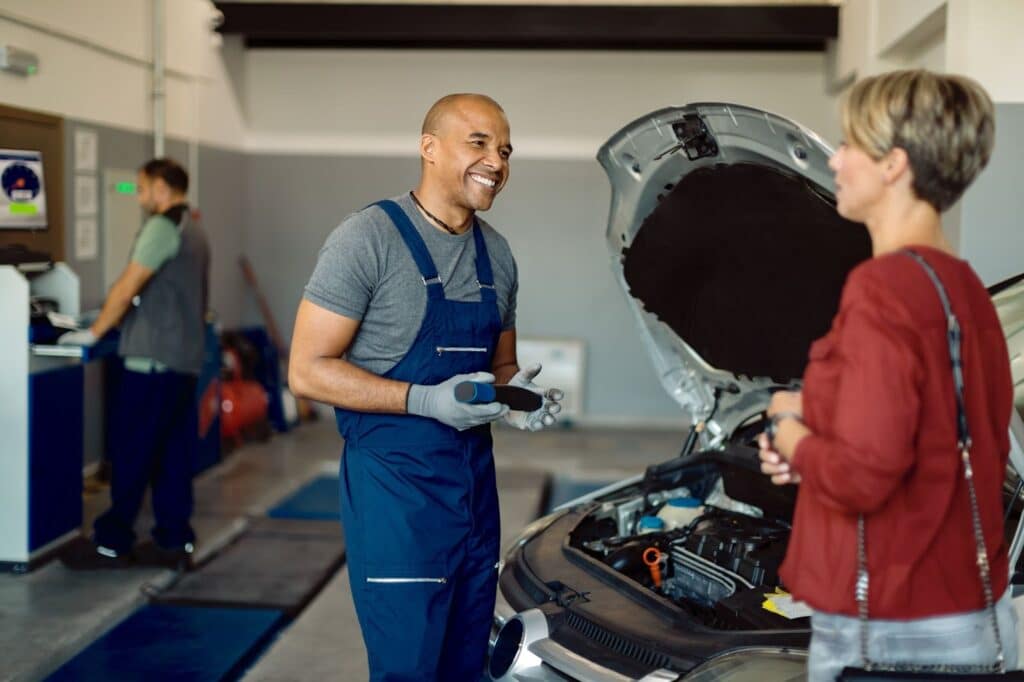Vehicle inspections in West Chester are crucial for ensuring that cars on the road are safe and meet emissions standards. These inspections help keep vehicles running efficiently and go a long way in protecting both drivers and the environment.
Failing an inspection can be frustrating, but it means your car has issues that need fixing before you can drive it legally. Knowing what happens if your vehicle fails inspection can help you address these problems quickly and avoid further complications.
This article will cover the fallouts of failing an inspection, common reasons for failure, and the steps you should take to get your car back on the road. Understanding the process can help you make informed decisions and keep your vehicle compliant and safe.
What Happens If Your Car Fails Inspection?
When your car fails inspection, you will receive a report detailing the specific reasons for the failure. This report outlines problems during the inspection, such as safety or emissions issues that need fixing. Without passing inspection, your car won’t receive a new inspection sticker, which means it cannot legally be driven on public roads until it passes.
The old inspection sticker is typically removed, and a new sticker won’t be issued until all the necessary repairs are made, and your car passes a re-inspection. Driving with an expired or missing inspection sticker can lead to fines and penalties if you’re pulled over by law enforcement. Depending on local laws, there may be limited allowances for driving, but it’s best to avoid driving the car until it is fixed and re-inspected. Promptly addressing the issues doesn’t just help you comply with the law it also ensures your vehicle is safe to drive.
Additionally, certain repairs, such as not getting a wheel alignment, can contribute to failing an inspection. Misaligned wheels affect your car’s handling, cause uneven tire wear, and pose safety risks. Regular maintenance, including checking and correcting your wheel alignment, helps avoid inspection failures and keeps your car running smoothly.
Common Reasons for Inspection Failure

Understanding why cars fail inspections can help you avoid these problems in the future. Here are some common reasons why vehicles fail inspections in West Chester:
Emissions Issues
Emissions tests are a major part of the inspection process. Many vehicles fail due to problems related to the exhaust system, such as faulty oxygen sensors, exhaust leaks, or a malfunctioning catalytic converter. These issues can cause your car to emit pollutants beyond acceptable limits, leading to a failed inspection.
Safety Concerns
Safety is a critical focus during inspections. Your car may fail if it has worn brake pads, tires with low treads, broken or malfunctioning lights, or a cracked windshield. These components are essential for safe driving, and any faults must be corrected before your car can pass inspection. Ignoring repairs like wheel alignment can directly impact your car’s handling, making it unsafe and more likely to fail an inspection.
Mechanical Problems
Mechanical issues such as fluid leaks, steering or suspension problems, and exhaust system defects can also cause a failed inspection. Not only do these issues affect your car’s performance, but they also pose significant safety risks if left unaddressed.
Steps to Take After Failing Inspection
If your car fails inspection, don’t worry—there are clear steps you can take to resolve the issues and get back on the road.
1. Review the Inspection Report
The first step is to carefully review the inspection report you received. This report lists the specific reasons why your car failed, giving you a clear picture of what needs fixing. Understanding these problems is key to addressing them effectively. If you have any questions about the report, contact the inspection station. They can provide further explanations and help you understand what needs to be repaired.
2. Get the Necessary Repairs
Once you know why your car failed, it’s time to get the required repairs done. Find a reputable repair shop experienced in handling inspection-related issues. Choosing the right shop ensures quality repairs and helps you get back on the road quickly.
Request a detailed quote from the repair shop that outlines the costs for parts and labor. This helps you understand what to expect and budget for the repairs. Make sure all the issues listed in the inspection report are addressed, as your car will need to pass a re-inspection before you can get a valid inspection sticker. Getting repairs done promptly is important because driving without a valid inspection sticker can lead to fines and legal problems.
3. Re-Inspection Process
After completing the necessary repairs, you need to bring your car back to the inspection station for a re-inspection. This step is crucial to ensure that all the issues have been fixed and your car now meets the required standards. In Pennsylvania, there is usually a specific window of time in which you can get a free re-inspection, so try to schedule it within that period to avoid extra costs.
During the re-inspection, inspectors will review the repairs to confirm that all the problems have been corrected. If your car passes, you will receive a new inspection sticker, allowing you to legally drive your vehicle again. If the car does not pass, the inspector will inform you of any additional repairs needed, and you will need to repeat the process until your car meets all the requirements.
Trust Welsh Automotive for Your Car Inspection and Repair Needs

Need repairs after a failed inspection or looking for a pre-inspection check to catch any issues early? We’ve got you covered. At Welsh Automotive Specialties, we’re here to help.
With locations in Exton, PA, and West Chester, PA, our team of certified technicians knows how important it is to keep your car safe and roadworthy. We are here to help you pass your inspection without any hassles.
Schedule your next car inspection with us today and experience quality care at its best.


